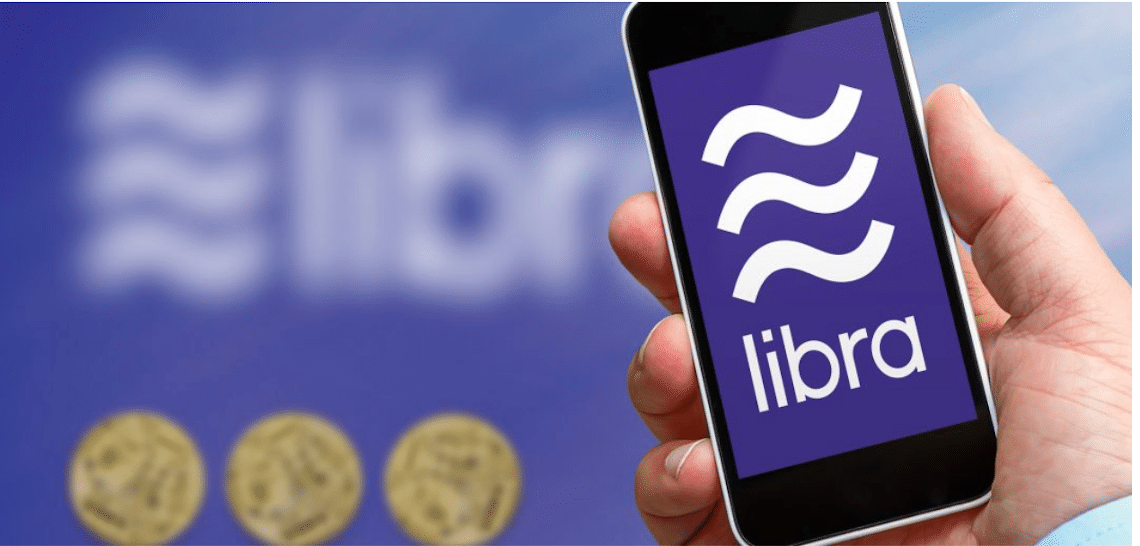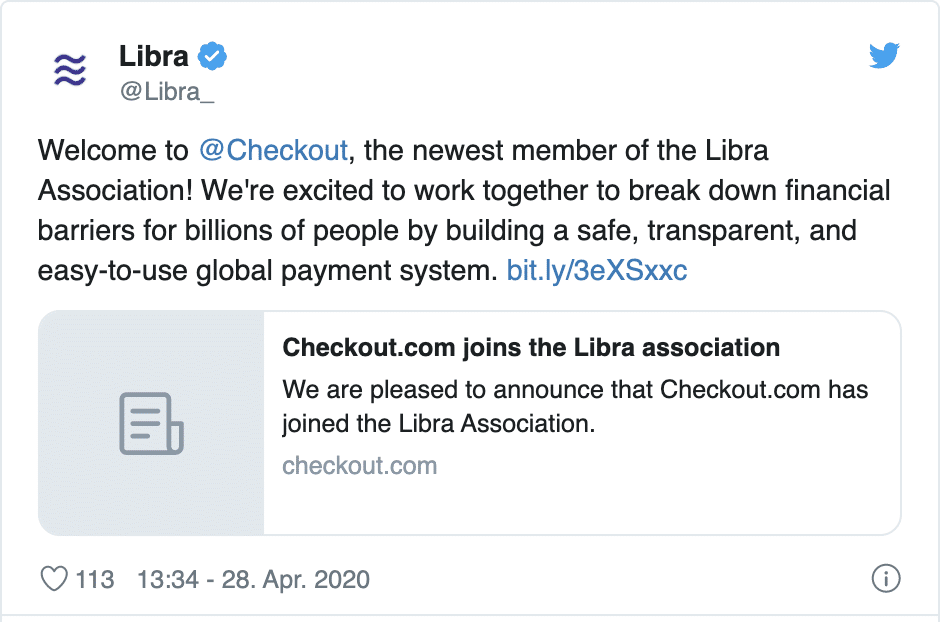
Most recently, the Geneva-based Libra Foundation returned with a revised white paper and a FINMA application for the authorization of a payment system. This week the admission of a new member in the form of a payment provider was announced.
The new payment service provider is the British start-up Checkout.com, who will join the Libra Association as their 24th member.
Guillaume Pousaz, CEO and founder of Checkout.com has announced the news in an official statement from the company. The company not only wants to support the technological progress behind Libra, but also to play its part in the necessary regulatory framework.
Focus on regulatory framework
According to the company’s CEO, a technical breakthrough is not possible without a regulatory framework. Since a secure and stable payment infrastructure is absolutely necessary for a mass application, regulations against systematic abuse are essential.
The company explains its decision to join Libra by saying that it is convinced of the vision of giving billions of people without bank accounts access to financial resources. Pousaz sees similarities between the mission of Checkout.com and the Libra project and wants to change financial services for the better.
Major payment service providers had recently turned their backs on the Libra project
After many top payment companies, such as Visa, Stripe and Mastercard, had already left the Libra Association in the past months, a payment service provider is now back on board. Due to regulatory concerns, the companies that left the project already left in October 2019.
According to the chairman (Dante Disparte), the Libra project should now be launched in the fourth quarter of 2020. The Libra Association had already applied for a payment licence from the Swiss FINMA in mid-April. As part of the application, the company had also published several amendments to the white paper, which are now intended to move the project forward.
In addition, a payment system that interacts via VASPs, such as custodial wallets and crypto exchanges, has recently been assumed. The original white paper was still aimed at a permissionless system, which provided for disintermediate processing. Also, a “comprehensive system at network level to combat money laundering (AML), to combat the financing of terrorism (CFT) and to enforce sanctions” was to be implemented.
*Originally published in German at CVJ.ch


